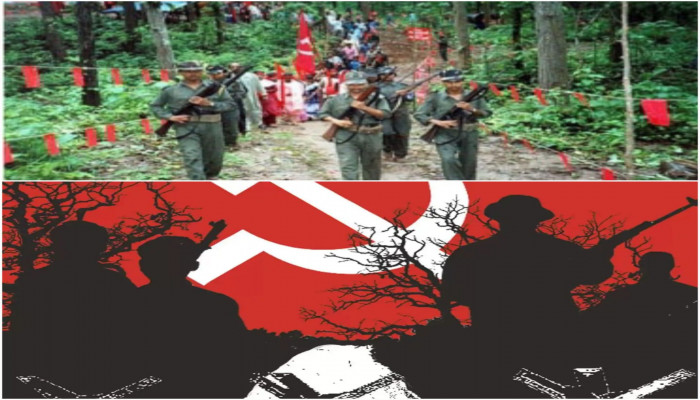Banned CPI party’s rebel leader 'Abhay' proposes ceasefire, peace talks in a letter dated April 2 to government
- In Reports
- 02:38 PM, Apr 11, 2025
- Myind Staff
A letter proposing peace talks and a ceasefire with the government, released on April 2 by the banned rebels of CPI, was signed under the alias ‘Abhay,’ which is the nom de guerre of Mallojula Venugopal Rao, a 69-year-old Politburo member of a banned insurgent communist party in India.
According to the letter, a committee had recently met in Hyderabad, and the rebels were ready to announce an immediate ceasefire and begin a dialogue on the condition that security forces halt the establishment of police camps and suspend anti-Naxal operations in areas including Chhattisgarh, Gadchiroli in Maharashtra, Odisha, Jharkhand, Madhya Pradesh, and Telangana. However, the government remains doubtful about the offer, particularly due to the preconditions attached.
The offer has come in the name of ‘Abhay’, a senior leader of the banned insurgent communist party in India who is also the younger brother of Mallojula Koteswara Rao, better known as Kishenji, who was killed in a police encounter in West Bengal in November 2011. Abhay has several other names, including Bhupati, Vivek, Rajan, and Sonu. He holds a key position in the party as a Politburo member, serves on the Central Military Commission, and acts as the group's spokesperson.
Both brothers are from the Peddapalli district in Telangana and were raised in a humble household rooted in the legacy of freedom fighters. During the 1970s, Telangana saw an intense wave of anti-establishment sentiment, which inspired widespread student activism and drew many toward the banned insurgent communist party in India’s ideology. Venugopal, like his brother, was influenced by this movement. While attending Government Degree College in Peddapalli, he and Kishenji were accused of setting a government bus on fire during a protest against the authorities.
As the Naxalite movement gained momentum in Telangana during the 1980s, a secretive Communist group called People’s War emerged. Koteswara was the first to join, and later, Venugopal followed in his footsteps. In September 2004, People’s War merged with another underground Communist group, CPI (M-L), to form what is now known as a banned insurgent communist party in India. Throughout the 1990s, Venugopal was active across banned insurgent strongholds in different states, taking part in various operations, often alongside prominent leader Kishenji. As they worked together, Venugopal’s influence within the organisation grew significantly.
According to officials, a turning point in Venugopal’s life came in 2011, when his brother was killed during anti-Naxal operations carried out by the Congress-led UPA government. After that, Venugopal took charge of the party’s activities in Lalbagh.
In December last year, Venugopal’s wife, Vimala Sidam, also known as Tara, surrendered to Maharashtra Chief Minister Devendra Fadnavis in Gadchiroli, along with 10 other rebel members. Originally from Telangana, Tara had been part of the banned CPI party for many years and had risen through the ranks to become a Dandakaranya Special Zonal Committee member.
Venugopal’s proposal for peace talks comes when the central government has intensified its efforts against Naxalism. Union Home Minister Amit Shah has set a target to eliminate Left Wing Extremism by March 2026.
Meanwhile, reports suggest that some rebel leaders recently met in Telangana’s Bhadradri-Kothagudem district to assess the current situation. Venugopal’s letter came just days after 86 banned CPI party members surrendered to the Bhadradri-Kothagudem police.







Comments